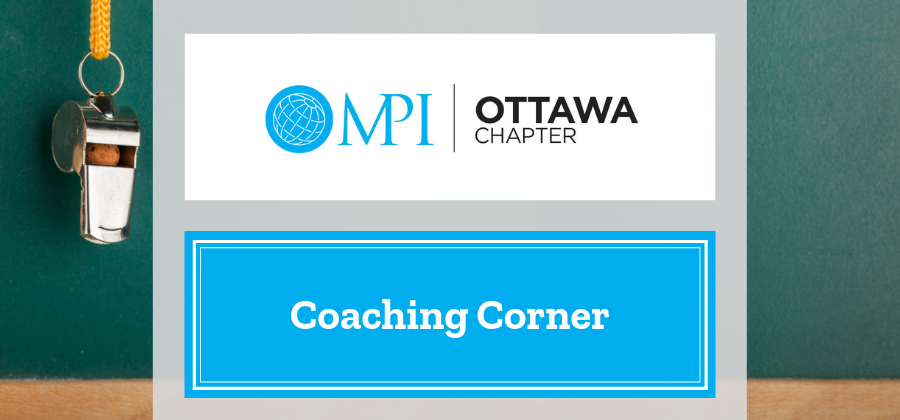Studying for the Certified Meeting Professional exam? MPI Ottawa has you covered!
Learn More
Check out all the exciting events taking place in the upcoming year!
Learn More


Coaching Corner - Tips for Effective Teamwork and Communication

What comes to mind when you think of teamwork and communication?
- Collaboration
- Respect
- Listening
- Positivity
- Conflict management
- Reliability
- Openness
- Support
Teamwork and communication is important for good relationships, team effectiveness and positive engagement. These are a few ways to enhance your teamwork and communication skills.
Show appreciation
It can be easy for us to focus on the negative instead of the positive. We focus on what didn’t work in order to improve and do better in the future.
Sometimes recognizing the little things can make a big impact on the overall team morale. By telling your coworkers how much you value their contributions it might make them feel like they matter and that they play a key role on the team. It is also important to celebrate successes, big or small, by either expressing gratitude or holding a team social. Recognizing achievement and success shows your team how appreciated they are and will encourage them to continue to strive in the future.
Conduct team building activities
A team can consist of people with very different personalities and working styles. Some may be more logical and analytical, some may be detail or idea-oriented, while others may be more emotionally oriented.
A great way to learn what type of working style your team members have is by doing team building activities. It is a great way to learn what practices your team members think are best and how you can work together as a group to reach a common goal or outcome.
Team building activities can also have great impact on productivity and helps to build good relationships. Some activities could be a team lunch, ice breaker games, escape rooms, or scavenger hunts. Try doing an activity monthly or bi-monthly, even if it is as simple as grabbing a coffee as a group. Staying connected in a social manner can have a positive impact in the long run.
Understanding communication styles
Similar to different working styles, team members might also use different communication styles with one another. Some people may be more direct via emails, while others might chose to end their note with a smiley face. This is not to say that one is better than the other, but it is important to keep in mind that not everyone communicates in the same way.
The same can be said when providing feedback. Someone who is more introverted might need time to process the feedback and reflect. While an extrovert might want to think out loud and have an immediate conversation on the spot.

Body Language
Your body language can also have an effect on teamwork and communication because of the image you are giving off. Imagine you are having a meeting with the guy in the image above. Does he give off the impression that you have his full undivided attention? Most people would probably answer no. He is giving off the impression that he has better places to be and you are wasting his time by having this meeting.
Our body language has a huge impact on the people around us. It is important to be open and approachable by keeping your arms uncrossed, maintaining eye contact and putting away your devices during meetings.
Conflict Resolution
With any group dynamic, conflict can be inevitable no matter how hard we try to avoid it. A team can have various backgrounds, strengths and different styles of work habits.
When conflict arises, these are a few steps to follow in order to address the issue:
- Acknowledge the conflict – Ignoring the issue will not make it go away and may only cause further issues in the future.
- Take a minute – It is okay to take a step back and think of the course of action you would like to pursue. Avoid being defensive and pointing the finger, and instead try to be a part of the solution.
- Share your opinion – Let your team hear your opinion on the conflict and allow each team member to explain their stance. This will help everyone understand each other’s viewpoints in order to work towards coming to a solution.
- Next steps – As a team, come up with actionable steps that can be taken to resolve the issue. By working on this as a team, everyone will be on the same page and in agreement with the solution.
These are only a few tips of many for effective teamwork and communication. If you have any questions about this article, student membership or have topics you would like to see in future “Coaching Corner” articles, please don’t hesitate to send a message to students@mpiottawa.ca.

Article written by Meg LaPlante, Royal College of Physicians and Surgeons of Canada
Article edited by Rozanne Lyons, CMP, Intertask Conferences

Leave a commentOrder by
Newest on top Oldest on top